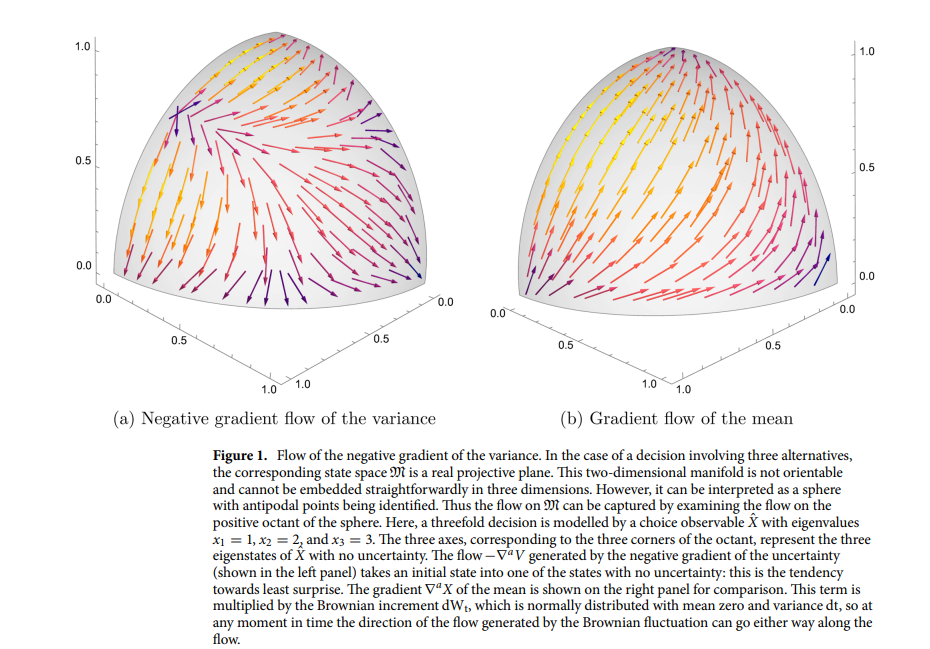The paper “Quantum formalism for the dynamics of cognitive psychology“, with sole author Dorje Brody, has been published in Nature/Scientific Reports. It is published open access (link here). It is well documented in cognitive psychology that human behaviour often exhibits “irrational” features. For example, you are likely to choose A if B happens, and you are likely to choose A if B does not happen; yet, you are less likely to choose A if you don’t know whether B happens or not. There are many such examples known. This does sound irrational, but what defines rationality? A precise definition of irrationality is that behavioural patterns do not follow the rules of classical probability theory. However, over the past 15 years or so, within cognitive science people have realised that all these apparently irrational behaviours can be explained using quantum probability rules — and this has led to the creation of a new research field known as “Quantum Cognition”. An important question arises as to how the cognitive state of mind changes in time (what is the dynamics) when a person digests partial information? In parallel to the exciting developments in cognitive science, Dorje has developed over the past 20 years a mathematical framework that enables the description of the dynamics of cognitive state when people digest noisy information, and applied it to model the dynamics of financial markets. This framework relied heavily on the use of quantum mathematics, as well as the theory of signal processing. Putting these ideas together, this paper explains in some detail how it is effective, and is sometimes necessary, to represent the state of mind of a person as a “state vector” on Hilbert space (like a wave function in quantum mechanics), and how familiar notions in quantum theory such as superposition principle, entanglement, and decoherence, manifest themselves in describing cognitive behaviours. The image below shows Figure 1 from the paper (click on image to enlarge).

